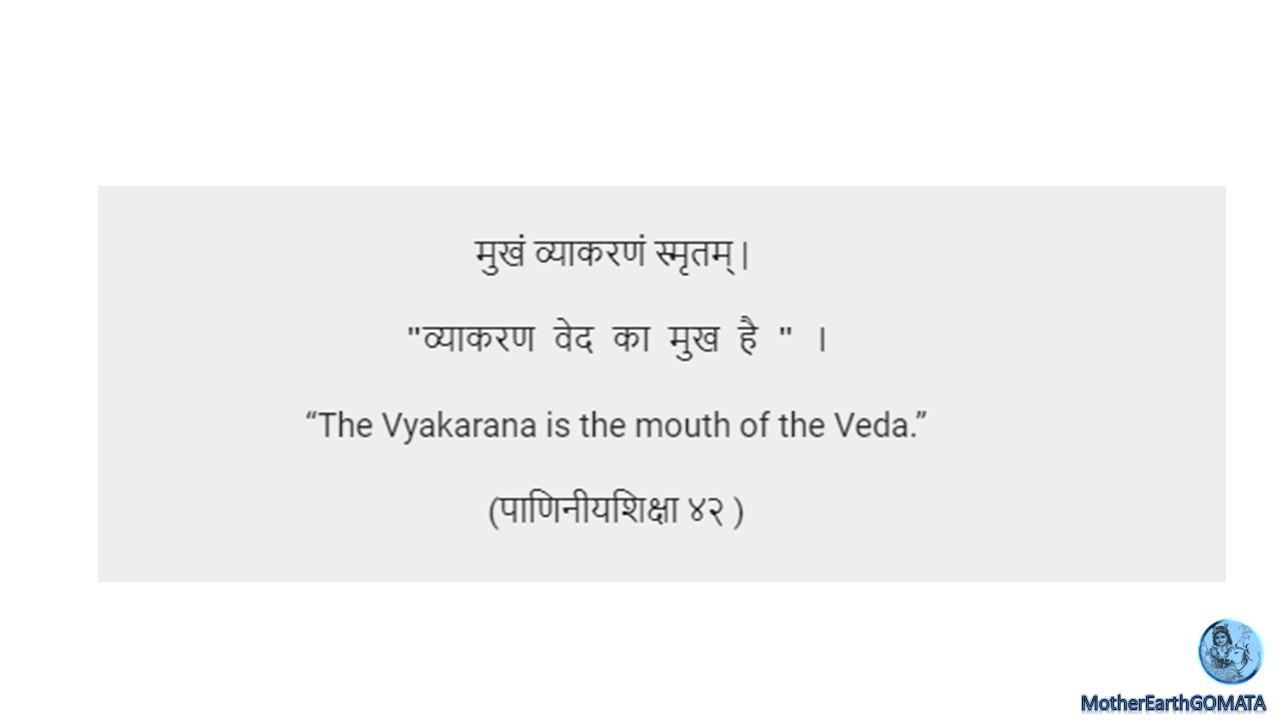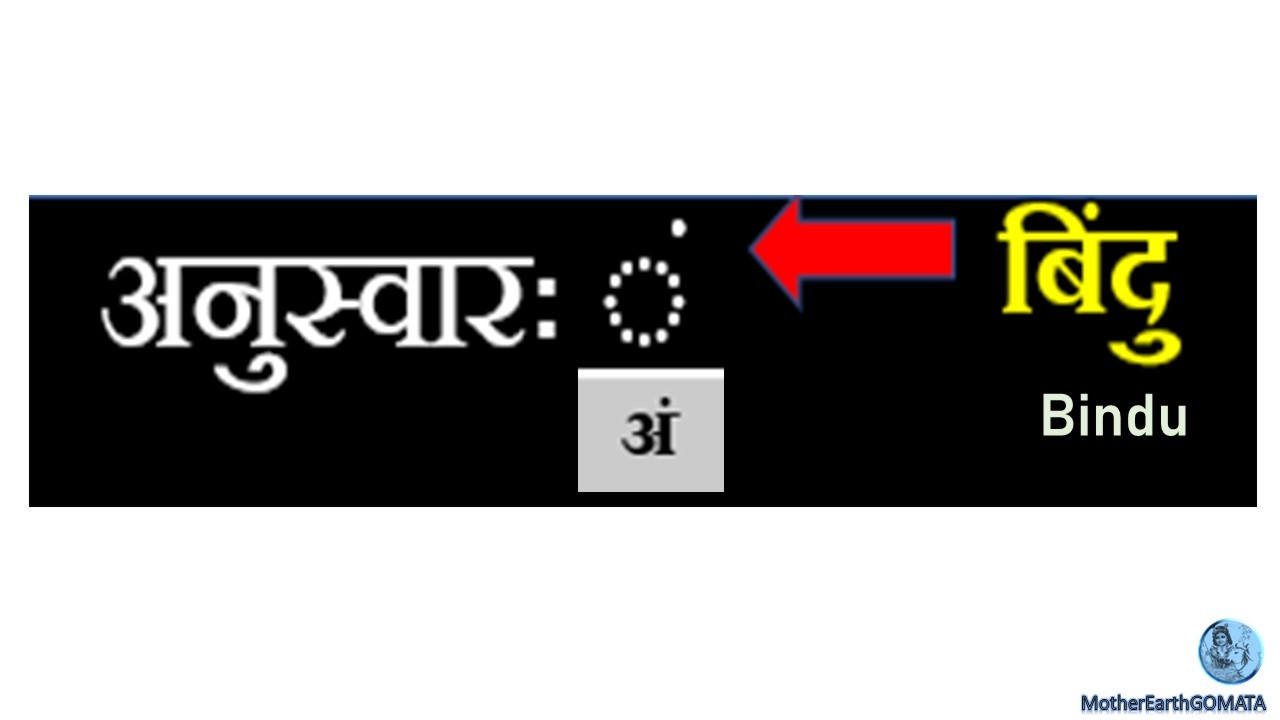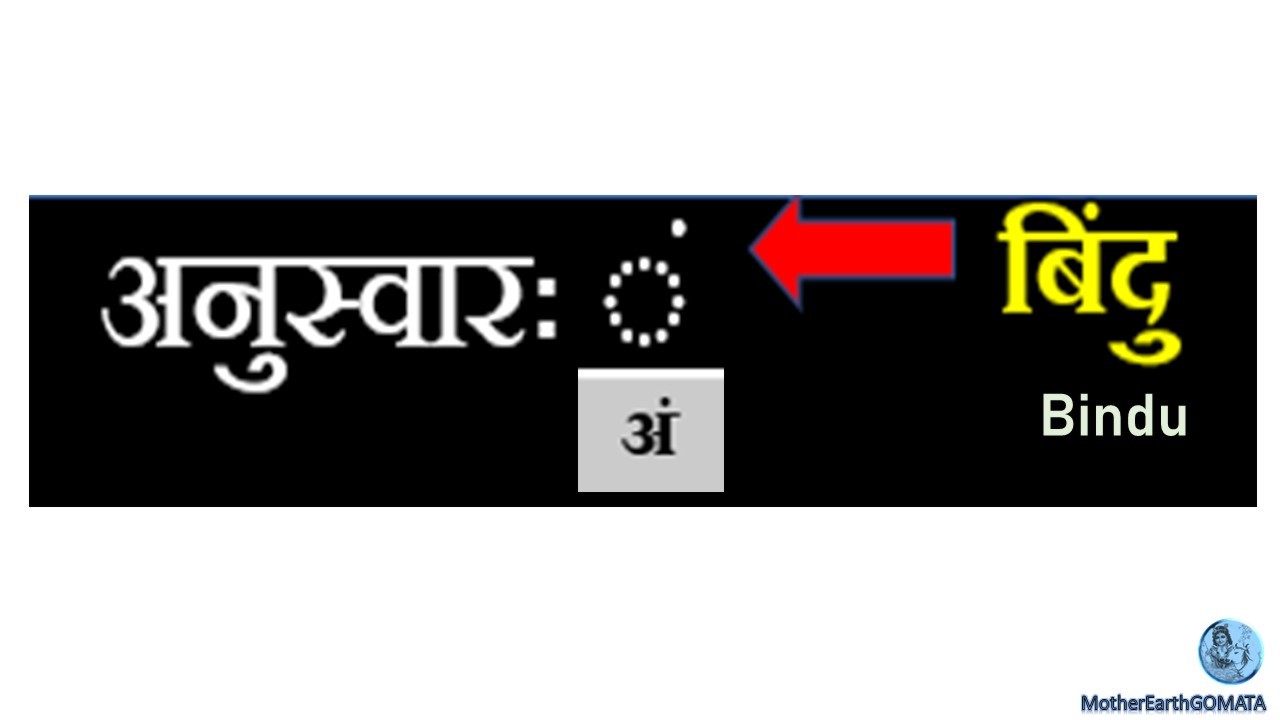
It is important to Know Vyakarana Vedanga to gain the correct understanding of Vedic scriptures. In this post under Vyakarana Vedanga we are understanding about the Anusvaarah (अनुस्वारः) as per Ashtadhyayi. (Ashtadhyayi is one of the very important text to study Vyakarana Vedanga )

Vedic Samskritam is a pure phonetic language . The Vedic Samskritam literature has words whose phonetic equivalent is not found in other Indo European languages. For example , Jihvaamooleey (जिह्वामूलीयः) , Upadhmaaneey (उपध्मानीयः) . Phonetic ,that is, Sound is the highest priority in Vedic Samskritam . Initially , the sacred Vedas were not written down, but only chanted in form of mantra, slokas, sutras . Infact ,Vedic Samskritam Varnamala (alphabets) originated from the Sound of Damaru as played by Lord Nataraja(Shiva).
In Vedic Samskritam, correct Pronunciation is extremely important as all sound have energetic effect . The letter or a word that is pronounce SHOULD be written as it is. For example, in English when we write word “sink” we do not pronounce the ‘n’ and when we write ‘sin’ we do pronounce ‘n’, the point over here is , in English we do not spell the word ‘sink’ differently, to account for the changes in Phonetic , but , in Vedic Samskritam we do pronounce differently to account for such changes as it is Pure phonetic language. अहं or अहम् meaning ” I – consciousness ” there is a reason WHY these both are written and pronounced differently .The knowledge of the undifferentiated universe is indicated by a Bindu ,that is , a dot अनुस्वारः (ं) Anusvaarah.
Rules for Anusvaarah (अनुस्वारः)
अनुस्वारसन्धिः / Anusvaarah Sandhi provides with guidelines about When and Why to put Anusvaarah (अनुस्वारः) (ं) on varna (letter). In Vyakarana Vedanga Ashtadhyayi , there are 4 Rules (sutras) that comes under अनुस्वारसन्धिः
1.मोऽनुस्वारः अष्टाध्यायी ८।३।२३
2. नश्चापदान्तस्य झलि अष्टाध्यायी ८।३। २४
3. अनुस्वारस्य ययि परसवर्णः अष्टाध्यायी ८|४|५८
4.वा पदान्तस्य अष्टाध्यायी ८|४|५९
In the above video we are understanding 1st rule मोऽनुस्वारः as per अष्टाध्यायी ८।३।२३.
Thank you

